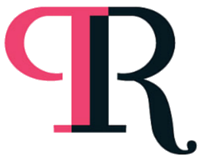
I’ve been actively working to normalize opening emails, texts, and phone calls with a statement that shows consideration for the recipient’s well being:
“Do you have the capacity to…?”
“Can you handle this today?”
“Are you able to receive … at this time?”
“How can I make your day better?”
“Do you have the energy for…?”
At any given time, but especially as we’re in the midst of witnessing multiple global humanitarian crises on a daily basis, it’s so important to hold space for the full range of our emotions. As a professional writer, and someone who prioritizes my mental health, taking a temperature check of the recipient’s mental and emotional state before initiating a conversation has become a non-negotiable for me. Beyond that, as I approach more sensitive topics, I make it a point to speak from an informed perspective to ensure I’m able to present my thoughts with both accuracy and deference; an act, I recognize, some people are still learning how to do.
The day that I shared my list of terms mentioned above on Instagram, I received the following DM:
“What are your thoughts about the genocide in Gaza right now Pauleanna? All lives matter in my opinion and I know same for you. Just asking for a friend.”
For context, this person is not a friend of mine. I would barely consider them a colleague, as we speak maybe once every few years, at best. Additionally, the post they were responding to was of a lighthearted family photo shared on my Instagram stories, with no mention of or connection to today’s current events. In my honest opinion, while I’m always willing to engage on social media, the intention behind the question, paired with their approach gave me pause. It lacked the sincerity required for honest discourse, but more importantly, took no account of my capacity to respond.
What we’re witnessing every day feels insurmountable. Now, more than ever, we must be mindful of how we inform ourselves in this age of heightened sensitivity and misinformation. Myself and my team, even those of us who aren’t writers, have a responsibility to use our voices as purveyors of language; a role and responsibility we hold in high regard.
But, I don’t like being cornered. In fact, no one does. Because of this, I politely informed the person that for a topic that required way more sensitivity and care, their approach was less than ideal. Clarity can go a long way, but it can only be achieved through proper communication. My first priority has always been taking care of home, and that’s what I intend to do here.
I don’t think it’s fair to assume that just because someone hasn’t publicly stated their sentiments or actions on a given issue that they’re not privately working to address hot-button topics. In the case of this ongoing war, we are privileged enough to be informed by real-time images and videos via social media, yet there’s a grievous reality unfolding a world away. The mere thought of that viewpoint should give us pause. As we search for the right emotion to encompass how we feel, or the right words to describe what we’re witnessing, it’s also important to know that taking time to properly position ourselves before speaking publicly is not just suggested, but encouraged.
The current situation is too volatile to issue empty statements. In recent days, several high-profile celebrities have unabashedly shared disinformation on their social media platforms that they had to quickly retract. While some celebrities have been quick to post or take a stand, some have been questioned for their silence, or reprimanded for their refusal to exclusively show support for one side over another. These events have revealed to us how strongly many of us feel compelled to contribute to public discourse when exposed to the heartbreaking circumstances of real people.
It must be mentioned, however, that whenever anything happens that involves the oppression of any people, Black women tend to be the most contacted for comment. Though we do naturally hold deep wells of information and perspective on the situation at hand, it’s never appropriate to assume we will perform under provocation. It is also unfair to attack us with misplaced anger when we assert our boundaries, and detach ourselves from the performativity of the publicly-assigned role of educator.
Contrary to popular belief, most fans and followers don’t want to see knee-jerk responses from their favorite business leaders, celebrities, or influencers. I’ll quote one of our favorites, Luvvie Ajayi Jones, who shared her stance on the subject after being accosted on three separate occasions in her Instagram DMs. “This is a landmine that cannot be distilled down into cute captions or hashtags. This is one of those issues where anything you say can and will be weaponized.” Speaking first does not equate to speaking the truth.
I don’t believe that this is the moment to voice our opinions on the actions of others. It’s also not the time to point fingers, pull up on people, or call out our peers for words unsaid or stones unturned. Incredibly treacherous times call for incredible amounts of patience, grace, mercy, and care. For those of us in positions of power and influence, our focus should be on sharing the stories of those whose voices are being silenced. Our voices are the most important tool we’ll use in the global struggle for peace, unity, and freedom, and evident amplification is more valuable than we think.
While everyone may want a sound bite now, what matters more in the long term is a thoughtful response made with care, and not condemnation. Your most laudable contributions will come from your genuine offering of support to those who are facing the greatest impact. Your community doesn’t want to hear carefully crafted words aimed at pacifying an issue that requires intentional depth and introspection. They’d much rather hear you speak from the heart and offer help in any area you can.
If we are to see liberation in our lifetimes, it will demand that we adopt the daily practice of personal and communal activism, rooted in unwavering morals and values. It’s okay to take the time needed to gain a deeper understanding of what’s going on, and where your particular set of resources are most welcomed.
Remember, influence is not limited to those with a large following. Hosting intimate conversations for your inner circle, helping to hydrate and feed protesters in your area, housing social justice workers within your network, or curating wellness check-ins for anyone you know — each is just as valid and necessary as donating money to credible organizations or sharing thoughtful social media content across personal and professional accounts.
Regardless of where we stand, we’re all facing a set of undeniable challenges meant to shift our consciousness. If we remain dedicated to changing our behaviors for the betterment of every living being, our individual and collective power will undoubtedly increase. To help you along on your humanitarian journey, our team has put together a short list of communications tips below.

Communication Tips For Tough Times
Let Humanity Lead
Taking the time to pause in uncertain moments that demand extensive examination doesn’t make you a bad leader, it makes you human. For the times when you’re unsure of how to react or direct your followers towards the solutions they seek, lean on your instincts, and trust your gut. You didn’t make it to a position of power without consistently doing and saying the things that align with the values of those who have routinely shown you their support.
What we are witnessing today is undoubtedly an ethnic cleansing. Many influential figures are grappling with the task of carrying out the business of their brands. There are those who have decided against speaking out publicly on this matter as they rarely address such topics at scale. Contrastingly, there are others who choose to remain quiet so as to not ruffle industry feathers. Wherever you find yourself, it’s important to ensure you continue doing what feels right for you.
No matter what, always avoid sharing content just for the sake of doing so, especially without first conducting your own research to ensure the information shared isn’t harmful or counterproductive to an intended goal. Not only is it easy to spot insensitivity in relation to sensitive topics, but when you hastily post information that disaligns with your brand, or is inherently wrong, blowback will always be close behind. Even if you delete the post, you’ll never be able to delete every mention of your embarrassingly hurtful mistake.
Research. Research. Research.
In an era of mis/disinformation, it is up to writers to be hyper-rigorous during the fact-checking phase. This is one of the top reasons we have a Quality Control team that we heavily lean on, no matter the topic. At WritersBlok, we triple check everything. We have an ethical responsibility to ensure that every piece of content that we produce — whether a book, speech, presentation, op-ed or social media post — unless it’s intentionally fictional, is factual. This benchmark quantifies the degree of confidence we can have in the accuracy of our reporting.
The following are some of our Quality Control team’s top questions to ask and items to consider during their fact-checking process:
- Does the information come from a reputable source?
- Have I investigated the information from different opinions/perspectives?
- Is this fact correctly situated within a wider context?
- Are the mentioned people, places, or things accurately identified?
- Have conflicting opinions/facts been addressed?
- Are names and titles spelled correctly?
- When was this information released to the public and have there been updates since?
- What’s the historical context and root of the current event? Does this story span years, decades, centuries?
When researching, do your best to verify all utilized sources and rendered information, and check the initial source when specific works or people are quoted. Even our most trusted outlets make errors sometimes, so taking the extra step to dig deeper than the surface is paramount. At times, it may even be appropriate to check who funds the media sources you plan to reference, as that might sway your decision to use their information. Measure twice, cut once!
Deference Is A Virtue
Being accurate is better than being first. While research can be generously enlightening, never assume you know everything. Trust that there will always be someone better versed on a given topic than you are, and in some instances, may even hold a differing viewpoint than your own. If there’s someone in your network like this, call them up. Deferring to someone more knowledgeable than you on the subject you’re interacting with is always a win.
- You’ll learn something new when you allow them to fill in the blanks and add color.
- You add value to the conversation you’re hoping to partake in by providing an additional resource other than your own platform.
Even if you don’t have the words, re-post. Share links. Above all, let your humanity lead you, and be kind to yourself–and others–along the way. A revolution has many lanes. What are YOU doing with what you have? Big or small, it matters.
